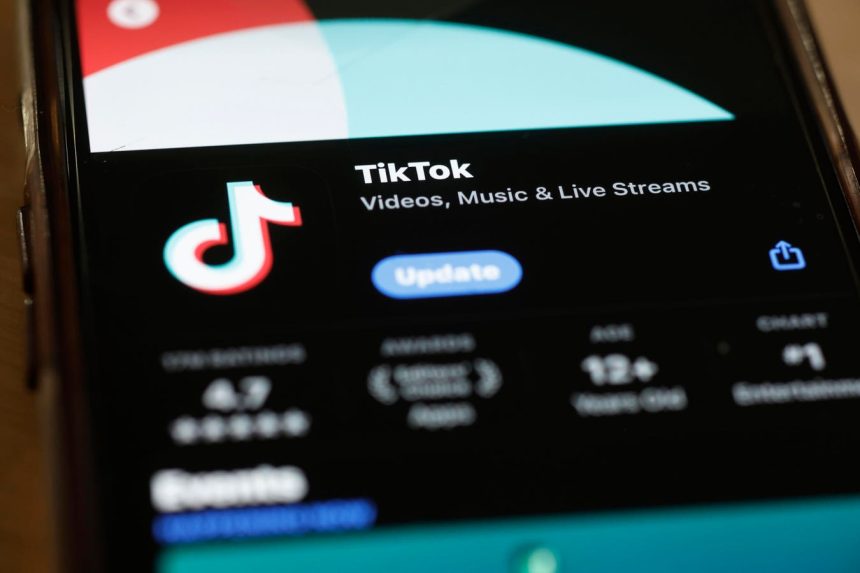The D.C. Circuit Court of Appeals’ decision to uphold the Protecting Americans from Foreign Adversary Controlled Applications Act (PAFACAA) has placed TikTok, Apple, and Google at the center of a complex legal and political battle. The law mandates the removal of TikTok from U.S. app stores by January 19, 2025, unless ByteDance divests the platform or receives a presidential extension. This ruling effectively bans TikTok in the U.S., raising significant concerns about free speech, national security, and the future of app regulation. The court’s decision, rooted in concerns about potential Chinese government influence over TikTok and access to user data, forces Apple and Google to implement an unprecedented ban, carrying the risk of substantial fines if they fail to comply.
Apple and Google, facing immense pressure to comply with the ruling, are grappling with the logistical and ethical implications of removing a globally popular app from their platforms. Internal discussions within both companies reveal anxieties about implementing the ban, ensuring compliance from foreign visitors to the U.S., and addressing the possibility of users circumventing the ban through sideloading (installing apps from sources other than official app stores). The sheer scale of TikTok’s user base, with hundreds of millions of downloads from Apple’s App Store and over a billion from Google’s Play Store, amplifies the complexity of the situation. Executives, including Apple CEO Tim Cook, acknowledge the inevitability of compliance while seeking ways to mitigate the ban’s impact.
TikTok’s response has been to emphasize the potential violation of First Amendment rights and the silencing of millions of American users. The company plans to appeal the ruling, likely to the Supreme Court, hoping for a stay on the ban while the case is considered. This legal strategy hinges on arguments about free speech, the law’s potential overreach, and the precedent it sets for future app bans. The company argues that the ban is based on flawed information and constitutes outright censorship, highlighting the platform’s popularity and its role in facilitating expression for a significant portion of the American population.
The Justice Department’s defense of PAFACAA heavily relies on reports of ByteDance’s alleged mishandling of U.S. user data, misleading lawmakers, and surveillance of journalists. These allegations, central to the court’s decision, underscore the national security concerns driving the legislation. While some former TikTok employees support the ban, citing firsthand knowledge of potential harms, the broader debate centers on balancing national security interests with individual freedoms. The court’s citation of these reports reinforces the narrative of TikTok as a potential tool for Chinese government influence, bolstering the argument for its removal.
The decision’s focus on Apple and Google, rather than directly targeting ByteDance or TikTok, reflects a strategic legislative approach. By placing the onus of enforcement on American tech giants, Congress aimed to ensure compliance, leveraging the companies’ strong incentives to adhere to U.S. law. This approach, however, entangles these corporations in a geopolitical dispute, forcing them to navigate complex legal and political terrain. The substantial fines they face for non-compliance further incentivize their cooperation with the ban, even as it raises questions about the role of private companies in enforcing government policy.
The impending change in presidential administration introduces another layer of uncertainty. President-elect Trump’s expressed desire to “save TikTok” conflicts with the law’s lack of presidential discretion, a deliberate measure by Congress to prevent executive interference. While Trump might explore non-enforcement through the Justice Department, his options are limited. Furthermore, several key members of his incoming cabinet are staunch supporters of the ban, creating a political dilemma for the incoming administration. The irony of Congress limiting presidential power, potentially hindering Trump’s ability to intervene on behalf of TikTok, highlights the intricate interplay of legislative intent and political maneuvering.
The TikTok ban represents a watershed moment in the regulation of social media platforms, raising fundamental questions about free speech, national security, and the government’s authority over online spaces. The D.C. Circuit’s decision, while upholding the law, opens the door for further legal challenges and potentially sets a precedent for future app bans. The case’s constitutional implications and its potential impact on millions of users make it a significant legal battle with far-reaching consequences. Civil liberties advocates warn of the potential for PAFACAA to become a model for suppressing online speech, while industry experts predict disruptions in the international app economy. The ultimate outcome of this legal and political struggle will significantly shape the future of online platforms and their relationship with governments worldwide.



